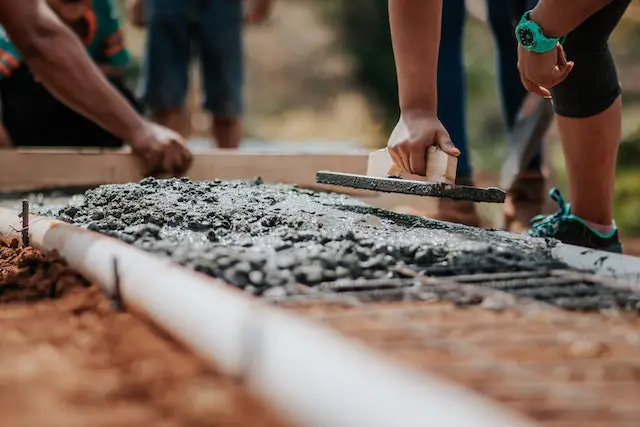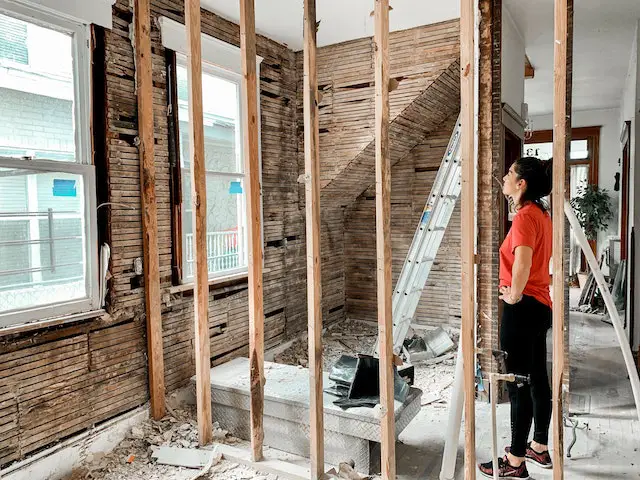‘Do I have to let my neighbour know about building work?’
Undertaking building work in the UK can be a complex and exciting venture. Whether it’s a home renovation, extension, or a new construction project, there are many factors to consider.
One crucial aspect often overlooked is the need to inform your neighbours about your building plans.
In the UK, you do have specific legal obligations when undertaking certain types of building work, and in this blog, we’ll explore them in detail to help you navigate the process smoothly.
Understanding Permitted Development
Before diving into the intricacies of notifying your neighbours about building work, it’s essential to grasp the concept of permitted development rights.
These rights allow you to make certain changes and improvements to your property without requiring planning permission. However, they are subject to limitations and restrictions.
Common examples of permitted development include small-scale home extensions and certain types of roof alterations.
It’s crucial to research whether your proposed building work falls under permitted development or if you need planning permission.
If your project is within permitted development, you may not have a legal obligation to notify your neighbours formally. However, it is recommended to inform your neighbour to avoid any future disputes.

When Planning Permission is Required
If your building project exceeds the scope of permitted development, you will need to obtain planning permission from your local planning authority.
This process involves submitting detailed plans and waiting for approval, which can take several weeks or even months.
In these cases, notifying your neighbours is part of the planning process.
The local planning authority will typically send neighbour consultation letters, allowing nearby residents to express their concerns or objections.
This formal notification process ensures that neighbours have a say in projects that might impact their property or quality of life.
This formal notification process ensures that neighbours have a say in projects that might impact their property or quality of life.
If you need to apply for planning permission, even though the planning authority will contact your neighbours, I recommend that you discuss your plans with your neighbours before you submit your plans.
This means you can find out if your neighbours have any issues and you could tweak your plans to increase your chances of getting your application approved. However, just because your neighbour objects, it doesn’t always mean your application with be rejected so make sure to seek advice from your architect if your neighbour does raise any concerns.
The Role of Party Wall Agreements
In some situations, even if your project is within permitted development or has received planning permission, you may still need to consider your neighbours.
This is especially true when the building work involves shared walls or boundaries. In such cases, a Party Wall Agreement may be necessary.
A Party Wall Agreement is a legally binding document that outlines how the work will be carried out concerning party walls, structures, or boundaries shared between your property and your neighbour’s property.
It establishes the rights and responsibilities of both parties and helps prevent disputes arising from the construction process.
You can get quick and free quotes from Party Wall Surveyors on Bark.com. I have personally used Bark.com and found it saved a lot of time.

Communication with Neighbours
Regardless of whether your project requires planning permission or a Party Wall Agreement, maintaining open and honest communication with your neighbours is essential.
Good neighbourly relations can help mitigate potential conflicts and make the construction process more manageable for all parties involved.
When to inform your neighbours about your building work depends on the nature of the project and the legal requirements.
However, it’s generally good practice to notify them as early as possible, even if it’s not strictly required by law.
This courtesy can go a long way in building goodwill and addressing any concerns your neighbours may have.
Legal Obligations to Notify Neighbours
If your building project falls under the Party Wall Act 1996 or if planning permission requires neighbour consultation, you have specific legal obligations to notify your neighbours.
Under the Party Wall Act, you must serve notice to adjoining owners when you intend to carry out work that could affect shared walls, structures, or boundaries. This notice should be provided in writing and include essential details about the project.
Failure to follow the legal requirements can result in delays, disputes, or even legal action.
It’s crucial to consult with a qualified surveyor or legal professional to ensure you comply with all relevant regulations.
Dealing with Neighbour Disputes
Despite your best efforts to maintain good neighbourly relations, disputes can still arise during building work.
Common issues include concerns about noise, dust, construction traffic, and potential damage to adjacent properties.
To address these disputes, consider mediation or alternative dispute resolution methods.
Mediation involves a neutral third party who helps both sides reach a mutually agreeable solution. This can be a cost-effective and efficient way to resolve issues without resorting to legal action.
If mediation does not work, you may need to involve local authorities or pursue legal action.
However, it’s generally best to exhaust all other avenues before taking this step, as legal proceedings can be time-consuming and costly.
Best Practices for Neighbour Relations
To ensure a positive experience for both you and your neighbours during building work, here are some best practices to consider:
- Open Communication: Keep your neighbours informed about the project’s timeline, potential disruptions, and how you plan to minimise inconveniences.
- Minimise Disruptions: Make an effort to schedule noisy or disruptive work during reasonable hours and consider your neighbours’ daily routines.
- Be Responsive: Address your neighbours’ concerns promptly and professionally, demonstrating that you take their worries seriously.
- Keep the Site Clean: Regularly clean up the construction site to prevent debris and dust from spreading to neighbouring properties.
Do I Have To Let My Neighbour Know About Building Work? Final Thoughts
In the UK, notifying your neighbours about building work is not only a legal obligation but also a way to maintain positive relations with those who share the vicinity.
Whether your project falls under permitted development, requires planning permission, or involves party wall agreements, it’s essential to follow the necessary procedures and engage in open communication.
By doing so, you can ensure a smoother construction process and potentially avoid costly disputes.
Remember, when in doubt, seek legal advice or consult with a professional surveyor to navigate the intricacies of notifying your neighbours about your building work in the UK.




Leave a Reply